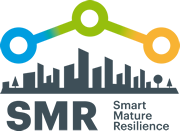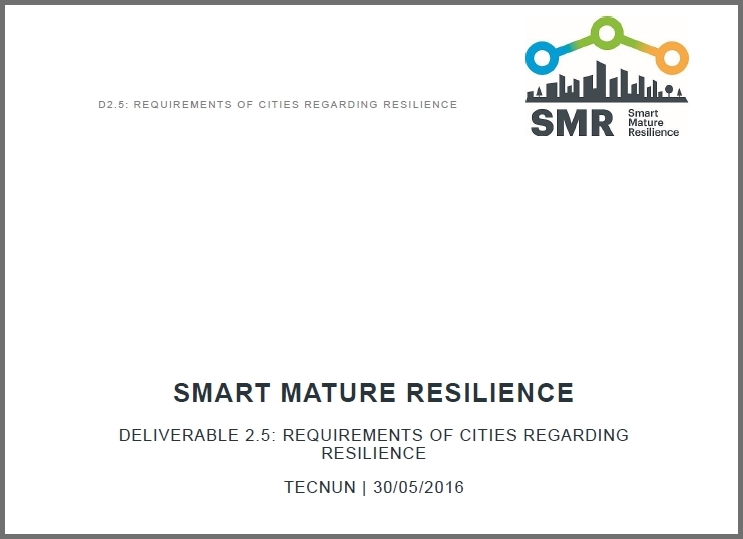Resources
PUBLICATIONS AND DOWNLOADS
Cities' Requirements related to Resilience
Date
Deliverable
30/05/2016
D2.5
Lead Partner
TECNUN, University of Navarra
Authors
Patricia Maraña (TECNUN), Josune Hernantes (TECNUN), Jose Mari Sarriegi (TECNUN)
Co-authors
Igor Pyrko (Strathclyde)
One of the main aims of the SMR project is to develop a Resilience Management Guideline able to help in the operationalisation of the resilience building process of any European city. To be able to successfully develop the Resilience Management Guideline it is necessary to gather as much relevant information as possible. The first step of the project included the revision of available literature regarding this topic as well as reviewing other projects on resilience in order to obtain current best practices on resilience. However, apart from the theoretic approach the SMR consortium has paid special attention to the practical requirements CITIES have regarding resilience. The participation of seven different cities in the project gives us the possibility to use their expertise to understand the benefits they expect to obtain from the SMR project. In this vein, four workshops have been conducted (Riga, Bristol, Rome and Vejle) within the scope of this project whose main aim was to gather practical requirements from CITIES regarding resilience and its operationalization process.
The aim of this report is to analyse and synthetize all the information gathered during these workshops to make explicit the practical requirements CITIES have regarding resilience and set the basis to develop the Resilience Management Guideline and its five supporting tools. Meeting the requirements identified will be compulsory to develop a Resilience Management Guideline compatible with the current managerial procedures within the city and the CITIES’ expectations regarding resilience.
The requirements identified during the four workshops have been divided into two groups. The first group includes all the general requirements related to the management level approach and the versatility to adapt the Resilience Management Guideline to any city context or existing standards. The second group describes the particular requirements each of the five tools composing the Resilience Management Guideline need to fulfil so that they can be adapted and used in different cities to deal with different types of shocks and stresses.

This project has received funding from the European Union’s Horizon 2020 research and innovation programme under grant agreement no. 653569.

